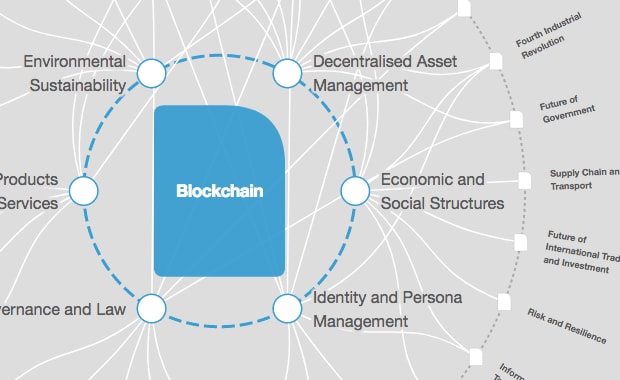How blockchain-driven humanitarianism can help people

How can the Blockchain and Web3 community can get aid into the hands of those who need it most? Image: Freepik.

Get involved with our crowdsourced digital platform to deliver impact at scale
Stay up to date:
Tech and Innovation
Listen to the article
- As devastating earthquakes hit Türkiye and Syria, blockchain communities scaled up efforts to raise urgent funds.
- Blockchain records show millions of crypto donations have already been sent to Türkiye and Syria.
- These examples of humanitarianism by the blockchain industry highlight how help can reach people on the ground.
The blockchain and Web3 community has come together to raise awareness and aid for disaster victims after two devastating earthquakes and hundreds of aftershocks in southeast Türkiye and northwestern Syria disrupted sanitation, medical care, food supply and access to safe water for over 23 million people and counting.
To date, there has been a little over $5.9 million in cryptocurrency donations, demonstrating crypto’s utility as an efficient way to transfer funds across borders. Organizations receiving funds include the Turkish Ministry of Interior Earthquake Humanitarian Aid Campaign, Turkish Red Crescent, Save the Children, Project Hope, Mercy Corps, International Rescue Committee, and others.
Additionally, blockchain companies including Binance, KuCoin, Tether, OKX and Bitfinex have pledged over $9 million in support of earthquake victims, adding to the efforts coming from governments, organizations, and businesses across other industries. Tezos, Ethereum, Ripple and Avalanche also made sizable donations.
Despite this goodwill, however, many Syrians accuse the world of abandoning them as the UN and global response focused solely on Türkiye in the first few days following the aftermath of the earthquakes.
Where humanitarianism bends to politics
In northwestern Syria, a dire humanitarian crisis is unfolding in major cities that have also suffered from the earthquakes, but have not received as much foreign aid nor media attention.
Over a decade of civil war in Syria has made 4.1 million of the area’s 4.5 million population dependent on humanitarian aid. Around 2.9 million people were already internally displaced from other parts of Syria – 1.8 million of whom are living in internal displacement camps and now at the receiving end of the worst devastation following the earthquakes. Since early 2015, the border between Türkiye and northwestern Syria has been effectively closed to refugees, leaving communities displaced by the earthquakes with nowhere to go.

Urgent international assistance is needed in northern Syria, but political dynamics have hindered rescuing and aiding survivors. The failure to respond to the worsening humanitarian crisis in the northwest brings to the forefront the challenges of getting foreign aid to a place ravaged in war, where no one entity is in total control.
Why is it so hard to send aid to northern Syria?
Syria today is divided into three different sections governed by different groups. Syrian President Bashar Al-Assad controls about 60% of the country which includes major cities: Damascus, Aleppo, Homs, Hama, to name a few. The US backed Kurdish forces control a large portion of the northeast, also known as Rojava, which includes Kobani, Afrin and Jazira. And the northwest, where the earthquake hit the hardest, is controlled by several different opposition militias that are supported by Türkiye.
Sending foreign aid assistance to communities living in any one of these three sections is hampered by restrictions imposed by the Syrian government, which also refuses some international organizations from accessing the area. Aid must also be approved by the Turkish government, given that it can only go through the Bab al-Hawa crossing on the Turkish border.

Further compounding this issue, delivery of aid to the area has been dependent on a vote every six months by the UN Security Council, whereby in 2020, Russia forced all the aid border crossings to close except for Bab al-Hawa, describing the aid as a violation of the sovereignty of its ally, the Syrian government.
Now with the earthquake, the roads to Bab al-Hawa are damaged beyond repair and the cross-border response has been disrupted.
The aid that does get into Syria, doesn't reach those in need
On 13 February 2023, the UN Secretary-General Antonio Guterres announced that Assad has agreed to temporarily open two more border crossings into Syria. The crossings at Bab al-Salam and al-Rai will remain open for three months for humanitarian aid. Bab al-Salam and al-Rai are both on Türkiye’s border with northern Syria.
However, aid reaching those in need continues to be a political issue. Despite Assad allowing the temporary reopening of two more border crossings into Syria for aid, it insists that all of that aid be distributed through Assad's own government, arguing that any aid deliveries to rebel-held areas are a breach of its sovereignty.
So far, the Syrian government has hindered the passage of about 100 aid trucks from the Kurdish region, an official for an aid organization who is helping run that effort told Al-Monitor in a telephone interview. The official, who spoke anonymously for security reasons, said the Syrian government was demanding that they hand over all their cargo. The Kurdish Red Crescent refused: “Based on past experience, we are concerned that they will keep everything for themselves,” the official added.
The politicization of foreign aid as well as the inaction by UN leadership has left local communities, humanitarian organizations and international donors frustrated. “We are trying to tell everyone to put politics aside. This is the time to unite behind the common effort to support the Syrian people,” said Geir Pederson, the UN Special Envoy for Syria.
How is the World Economic Forum promoting the responsible use of blockchain?
How the blockchain and Web3 community can help
When it comes to humanitarianism and social causes, the blockchain and Web3 community has stepped up in a big way. Platforms like The Giving Block and Endaoment have been aiding organizations outside of Web3’s parameters to set up crowdfunding pages so that crypto users can easily give directly to the charities they know and trust. Lest we also forget about how quickly and effectively the community mobilized to help Ukrainians in the aftermath of Russia's invasion of Ukraine, raising over $135 million in donations.
But right now, Syria is in desperate need. The blockchain and Web3 community can lead the way to direct donations and spread awareness of local aid groups that are not getting support or attention, but are on the ground putting their lives on the line to reach Syrians, Kurds, Yezidis, Alevis and other minorities that are caught amidst the politicization of aid.
These groups could use the support from the blockchain and Web3 community to get aid into the hands of those who need it most:
What sets the blockchain and Web3 communities apart from traditional humanitarianism is its ability to coordinate accountable aid delivery, manage transparent crowdfunding, establish cash-transfer programmes and empower individuals to coordinate and mobilize resources outside governmental control and authoritarian systems of injustice.
Where politics have taken precedence over human life, the blockchain and Web3 community can set an example and step in to help vulnerable populations in Syria that still believe that the world has forgotten about them.
This is where the power of this incredible community can really make a life changing difference.
Don't miss any update on this topic
Create a free account and access your personalized content collection with our latest publications and analyses.
License and Republishing
World Economic Forum articles may be republished in accordance with the Creative Commons Attribution-NonCommercial-NoDerivatives 4.0 International Public License, and in accordance with our Terms of Use.
The views expressed in this article are those of the author alone and not the World Economic Forum.
The Agenda Weekly
A weekly update of the most important issues driving the global agenda
You can unsubscribe at any time using the link in our emails. For more details, review our privacy policy.
More on Emerging TechnologiesSee all
Agustina Callegari and Daniel Dobrygowski
April 24, 2024
Christian Klein
April 24, 2024
Ella Yutong Lin and Kate Whiting
April 23, 2024
Andre S. Yoon and Kyoung Yeon Kim
April 23, 2024
Simon Torkington
April 23, 2024
Thong Nguyen
April 23, 2024






